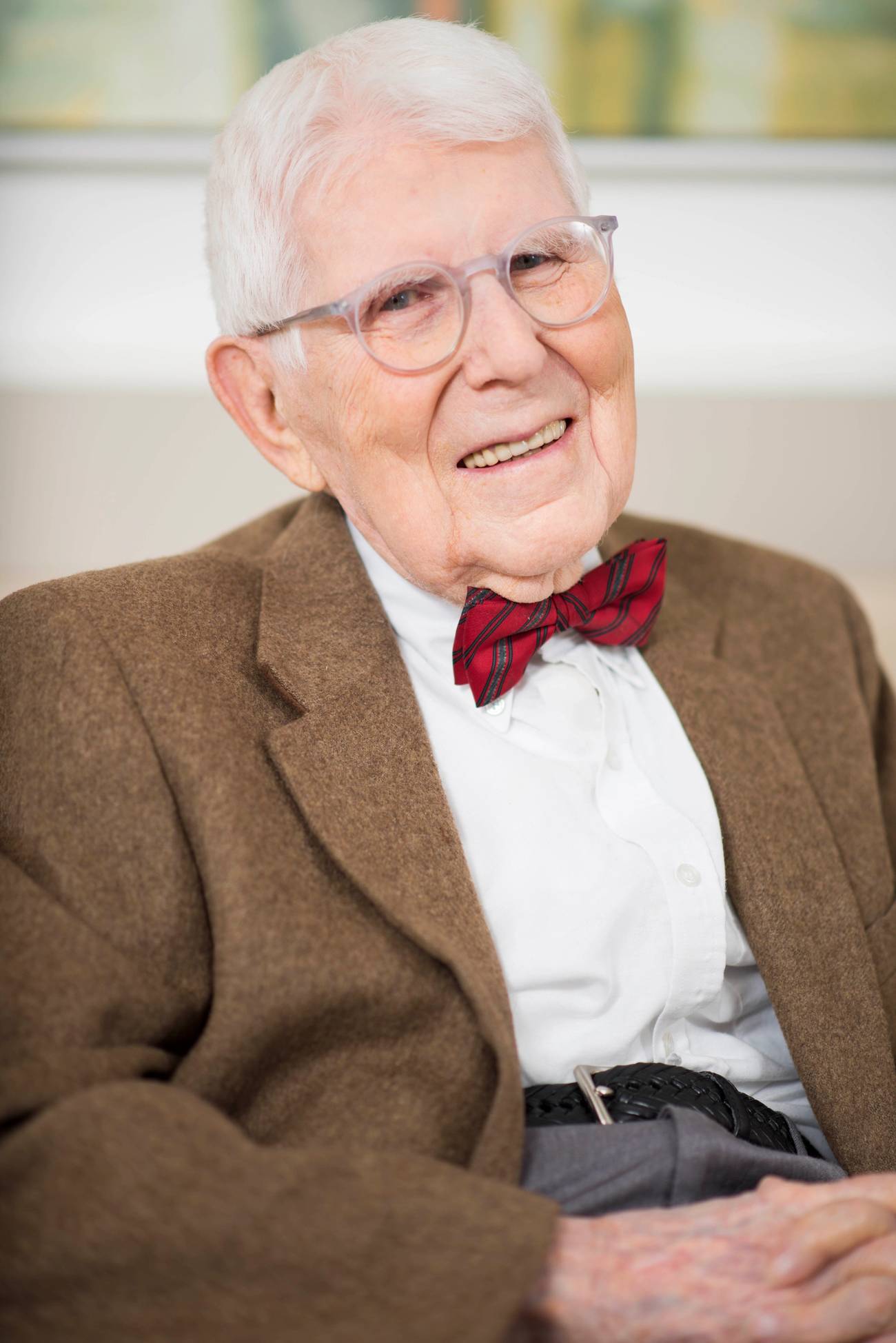Taking on Freud
Aaron T. Beck, the developer of cognitive behavioral therapy who died last week, took a Jewish approach when he battled the orthodoxies of psychoanalytic theory




Aaron T. Beck, among the most prominent psychologists in the world and the founder of cognitive behavioral therapy, died last week at the age of 100.
One of the field’s ultimate pragmatists, he renounced Freudian psychoanalysis earlier in his career in favor of a treatment that focused less on the unconscious and more on how to monitor and regulate unhelpful thoughts and beliefs. CBT, the form of treatment that he developed, eventually became wildly popular throughout the world and supplanted psychoanalysis as the method of psychotherapy preferred by most practitioners and patients alike.
Like nearly all of the giants in psychoanalysis and psychology of the last century, Beck was a Jew. Although tomes have been written both by and about Freud’s Jewishness and its influence on psychoanalytic theory, Beck’s Jewishness is largely ignored. Practical and shy by temperament, he conceived a treatment where the therapist serves as trainer and instructor, rather than a lightning rod for the patient’s conflicts.
Those who (merely) dutifully chronicle his achievements and innovations will miss out on a great deal of richness and drama. Mild-mannered, determined, and armed with scientific evidence and data, Beck took on the Establishment. What’s Jewish about this? Quite a lot.
It is well, Freud wrote, for a certain amount of defiance (and hatred) to be tolerated by the father. It helps the son leave home to create a life for himself. One might even say that it is typically Jewish to form a breakaway minyan, a subdivision. The early psychoanalytic movement, with its Dutch masters-style portraits of grim, brooding, Mitteleuropean, pince-nezed men, was rife with squabble and internecine conflict. The generations that followed were no different as many disciples broke with Freud and formed their own schools and theories within the field of psychoanalysis. Freud fretted, but he could do nothing about it. He knew what was to come.
Beck, however, went further than most. He “poisoned” the lugubrious, brooding, and sacred atmosphere of orthodox psychoanalysis of the 1950s with hope and pragmatism and good sense—and he was scarcely forgiven for it.
It was a case of Mister Rogers’ Neighborhood taking over The Addams Family. Beck, soft-spoken, bow-tie-wearing, calmly rejected the dense, tortured language of Freudian theory and the Kafkaesque, labyrinthine lexicon of psychoanalytic treatment and quietly dethroned the king.
For example: A Jewish woman is conflicted about eating ham and shrimp. “God will punish me if I indulge,” she says. Beck might say, “Let’s put these automatic thoughts and these beliefs about God to the test. Let’s go where the evidence is: Go ahead, eat, my child and let us see if God will strike you dead.”
To the Freudians he would say, we don’t have to deal with heavy transference and a tortured Oedipus complex in order to be good therapists and help people. We can do away with that and keep the good stuff! You mean, we can be good Jews and not have to keep kosher? Bring on the ham, man. This stuff tastes good!
What about Beck’s beliefs? My sense is that he was a belonging Jew, but not a believing one, at least in the formal sense. A good Jew and a good human being were of one gestalt for him. He was a New Englander by birth who wore his ethnicity and religion like a Unitarian from Toronto. He was Jewish, but Jewish-light, very light.
This is not to say that CBT is superficial. It is not. Practitioners of CBT will investigate the source of automatic thoughts that are linked to beliefs. Beck patiently and without malice shucked off the nonlinear, disorderly, and subversive ethos of Old World psychoanalysis. Many credit the CBT master with having rescued psychotherapy from itself. He single-handedly discovered that what is on the surface (and what is superficial) is deep.
Beck once worked with a man who felt unloved by his wife because she left in the morning without saying goodbye. “You think your wife doesn’t love you because you believe you are unlovable. There is no evidence to support this idea yet you hold to it. How is this belief helpful to you?” he asked.
Yet critics from every creed and camp are quick to point out that beliefs are not easily felled by “evidence”—they are shaped by our desires, our associations and identifications. Winnicottians assert that beliefs belong in a transitional space—people need not debunk them but rather move between belief and disbelief in order to live a creative life.
For all of Beck’s persuasiveness, though, psychoanalysis did not sink. Precisely because human beings are disorderly, nonlinear, and happily subversive, psychoanalytic treatment and its attendant mysteries and discoveries will likely thrive and be with us forever. Freud aimed to convert frantic agonies into ordinary human unhappiness. To put it simply, Freud distrusted happiness. Beck did not.
“It is typically Jewish,” Freud wrote to his son Ernst in 1938, “to renounce nothing and to replace what has been lost.” Even as mourning and loss are a preoccupation for Freud, it is entwined with blessing, for the consolation for loss is knowledge, but better than knowledge might be the hunger for knowledge itself.
Even as Freud did not set out to cure anyone with psychoanalysis, Beck proudly did so with CBT. Beck wanted to make the day brighter, Freud wanted to make the night more bearable.
Alter Yisrael Shimon Feuerman, a psychotherapist in New Jersey, is director of The New Center for Advanced Psychotherapy Studies. He is also author of the Yiddish novel Yankel and Leah.